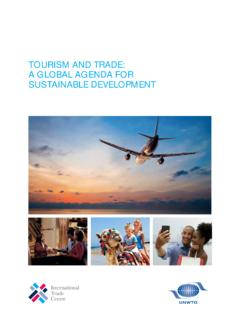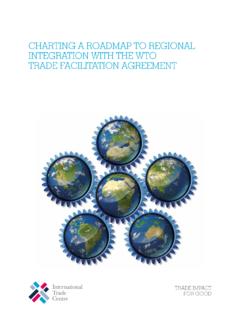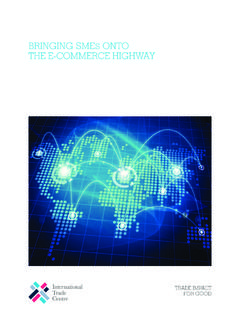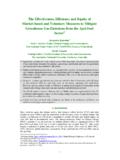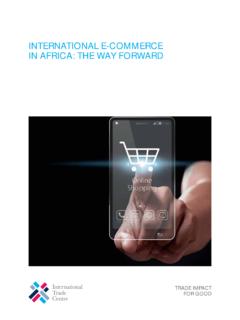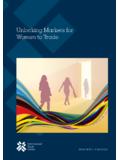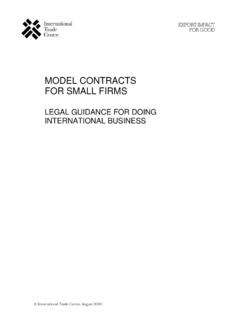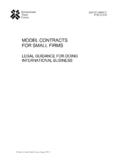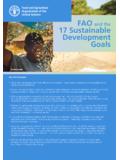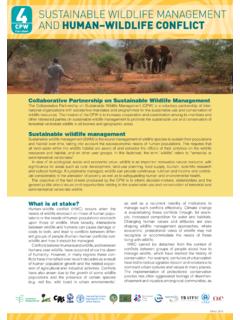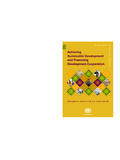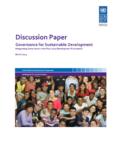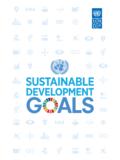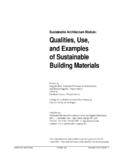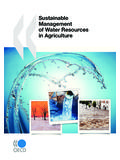Transcription of The State of Sustainable Markets 2017
1 The State of Sustainable Markets 2017 . STATISTICS AND EMERGING TRENDS. In collaboration with: forestry Sustainable production and trade allows us to produce, buy and sell in a way that ensures consumer protection, social responsibility and environmental sustainability. FSC This report features data on area, production volume and producers for 14 major voluntary sustainability standards covering forestry and eight Total certified area for agricultural products. PEFC. agriculture and forestry Collectively, these figures show that Sustainable sectors production and trade are no longer a novelty; they reflect consumer demand in mainstream Markets . agriculture Bonsucro RTRS. 14 major voluntary CmiA.
2 Ra Ter 4C. sustainability standards: Pro Z. 4C. UT. I. Better Cotton Initiative BC. de BONSUCRO irtra Fa Cotton made in Africa AN. Fairtrade International RA/S. Forest Stewardship Council IFOAM Organics International Share of certified area by Programme for the Endorsement standard for agriculture of Forest Certification RSPO. ProTerra Foundation Rainforest Alliance/ Sustainable Agriculture Network nic Roundtable on Sustainable Palm Oil ga Or Round Table on Responsible Soy UTZ. THE State OF Sustainable . Markets 2017 . STATISTICS AND EMERGING TRENDS GCP. 4C. RS. PO. Z. UT. BCI RA/SAN. Share of total certified area by standard for selected products o sucr Pro Bon Ter ra iA. Cm Org e trad a RTRS.
3 Nic Fair Selected products Bananas Oil palm Soybeans Sugarcane Cocoa Tea Cotton Coffee THE State OF Sustainable Markets 2017 . About the report Voluntary sustainability standards are in the mainstream, and no longer a novelty for niche Markets . This second global report outlines data on area, production volume and producers for 14 major sustainability standards across bananas, cocoa, coffee, cotton, palm oil, soybeans, cane sugar, tea and forestry products. The report is based on a partnership with the Research Institute of Organic Agriculture and the International Institute of Sustainable Development. The data can help shape decisions of policymakers, producers and businesses, working to address systemic labour and environmental challenges through certified Sustainable production.
4 Publishers: International Trade Centre (ITC), International Institute for Sustainable Development (IISD), Research Institute of Organic Agriculture (FiBL). Title: The State of Sustainable Markets : Statistics and emerging trends 2017 . Publication date and place: Geneva, June 2017 . Page count: xv, 175. Language: English ITC Document Number: ISBN: 978-92-9137-450-2. Citation: Julia Lernoud, Jason Potts, Gregory Sampson, Salvador Garibay, Matthew Lynch, Vivek Voora, Helga Willer and Joseph Wozniak ( 2017 ), The State of Sustainable Markets Statistics and Emerging Trends 2017 . ITC, Geneva. For more information, contact: Gregory Sampson, at ITC Julia Lernoud and Helga Willer at FiBL. The authors confirm the information in this report to be correct to the best of their knowledge.
5 Views by the authors and publishers are not subject to any obligation or imply the expression of any opinion whatsoever on their part; neither do they accept responsibility or liability for any possible mistakes, or for any consequences of actions taken by readers based on statements or advice contained therein. The views expressed herein do not reflect the official opinions of SECO and the standards/initiatives covered in this report. ITC encourages the reprinting and translation of its publications to achieve wider dissemination. Short extracts of this paper may be freely reproduced, with due acknowledgement of the source. Permission should be requested for more extensive reproduction or translation.
6 A copy of the reprinted or translated material should be sent to ITC. Digital image on the cover: Shutterstock International Trade Centre ITC is the joint agency of the World Trade Organization and the United Nations. THE State OF Sustainable Markets 2017 . Foreword from ITC. A growing world population, with its accompanying increase in the demand for food, is only heightened by climate change challenges. As environmental awareness grows, so too does the need to ensure the sustainability of what we consume. Non-governmental organizations, the private sector and governments including some in developing countries are investing in voluntary sustainability standards and global supply chains.
7 What does this mean for overall production and consumption patterns? What have recent efforts achieved, and where should they be directed next? Assessing what works, what needs to be recalibrated and what practices are worth replicating to scale up Sustainable production requires data data on Markets , impact, producer performance, certification and accessibility of voluntary standards. This is all the more important as we endeavour to report on progress towards the Sustainable Development Goals. Over the years, ITC has made numerous contributions on data provision and transparency in the field of voluntary standards. The Trade for Sustainable Development Programme, with its database and website containing details on over 230 standard systems, codes of conduct and audit protocols, provides a unique point of departure for comparisons and projections on the future of Sustainable value chains.
8 This year we are again partnering with the Research Institute of Organic Agriculture (FiBL) and the International Institute for Sustainable Development (IISD) to produce the second edition of the State of Sustainable Markets report, offering new insights into the evolution of certified Markets . Among the most noteworthy developments: All standards in the report continue to show growth of total certified area, albeit not at the same pace as in the past. About a quarter of all coffee grown is compliant with at least one standard. Organic continues to be the largest standard, currently covering million hectares, but accounting for only of agricultural land worldwide. This report is intended for policymakers and consumers alike.
9 Both of these groups attach increasing importance to the protection of their own health and to the social, environmental and economic conditions surrounding the products they buy. Consumers are exerting their influence with their pockets and with their voices. At the tap of a finger or the stroke of a key, they can make their views known throughout the twittersphere. One mobile phone video can be shared millions of times in just a few minutes. The importance of transparency is at an all-time high, pushing us to improve traceability, information-sharing and partnership. Consumers are powerful, and not afraid to wield their power both on their own behalf and on that of the planet. They are helping to ensure that the environmental impact and labour conditions associated with agriculture are duly monitored, and that appropriate sustainability standards are adopted and respected.
10 These and other trends in Sustainable Markets are grounds for optimism a message that is driven home by the findings of this report. Arancha Gonz lez Executive Director International Trade Centre ii THE State OF Sustainable Markets 2017 . Acknowledgements The Research Institute of Organic Agriculture (FiBL), the International Institute for Sustainable Development (IISD) and the International Trade Centre (ITC) are very grateful to the Swiss State Secretariat for Economic Affairs (SECO) for its financial support for the global data collection on voluntary sustainability standards and the production of this publication. Further acknowledgements are due to all the standards that collaborated on this publication: 4C, Better Cotton Initiative (BCI), Bonsucro, Cotton Made in Africa (CmiA), , Fairtrade International, Forest Stewardship Council (FSC), IFOAM.
